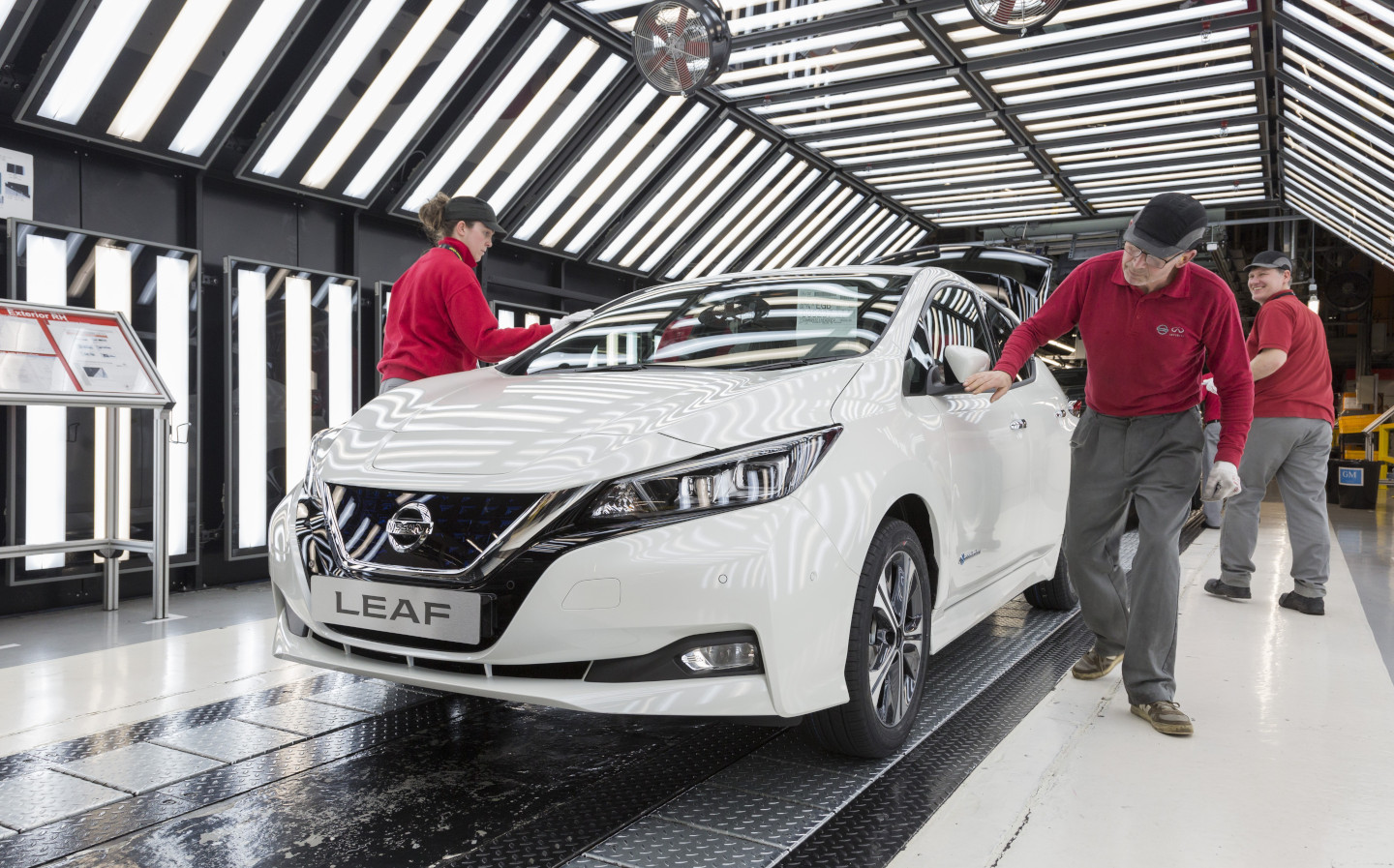Brexit tariff delay for British-built electric vehicles
EU proposal follows Nissan’s decision to build three new electric models in Sunderland
The European Commission has signalled a three-year delay to tariffs that would have impacted British-built electric vehicles (EVs) exported to Europe, and increased prices for UK customers buying vehicles from the EU.
The “rules of origin” tariff would have seen a 10 per cent tariff applied to exports if less than 45 per cent of the vehicle’s value originated from outside the UK or EU. It’s a measure designed to encourage vehicle makers to base EV battery production within the bloc, rather than other economic areas such as China.
With very few electric vehicle battery production facilities — or “gigafactories” — in the UK or Europe at present, most British- and European-built electric cars would have fallen foul of the tariffs, because batteries are such an expensive part of an electric vehicle.

However, an agreement is expected to be signed shortly, just under four weeks before the rules are due to come into force, which will delay the introduction of charges by three years.
Price rises were on the way
Both the UK and European car industries have been calling for a delay since the summer, claiming the rules originally due to come in on January 1, 2024, would have seen prices rise noticeably for consumers both in Europe and the UK.
The Society of Motor Manufacturers and Traders (SMMT) said the average EU-made battery-electric vehicle would have been £3,400 more expensive for UK customers, while the average British-built battery-electric vehicle would have been £3,600 more expensive for European buyers.
Under the terms of the Brexit deal, electric vehicles had already been exempted from the tax for three years, hence the January 2024 deadline. But the new deal is expected to add another three years’ exemption when it is ratified by the EU member states.
Perfect timing for Nissan
It’s unclear if the decision is linked to a recent decision by Nissan for a £3 billion investment in its Sunderland plant, which the Japanese carmaker’s president and CEO said in November was “at the heart of our future vision”.
The move will see Nissan build three new electric models in the north-east of England — the new Leaf hatchback, a new electric Juke SUV and a new electric Qashqai SUV — as well as a new gigafactory for battery production.

Naturally, it will take some time for Nissan to implement changes to the Sunderland factory and begin production of the new models. But the reprieve on tariffs should be enough to allow the Wearside factory to get up and running before the rules of origin are applied in January 2027.
Other manufacturers also look certain to be pleased with the news, and consumers may also breathe a sigh of relief. With almost half (49.1 per cent) of all new electric vehicles registered in the UK coming from Europe, the rules-of-origin tariff would have been seen as a barrier to the increased uptake of electric vehicles. It would also have open the door wider to cheaper rivals from China.
SMMT calls on government to do more
With incentives for buying electric cars already few and far between — especially for private customers — the SMMT yesterday called on the government to do more to encourage drivers to switch from petrol and diesel vehicles to less polluting hybrid and electric cars.
Just yesterday, the SMMT announced a year-on-year reduction in EV sales during November, bringing an end to 42 consecutive months of growth for the market.
However, the figures were slightly skewed by an abnormally large number of sales in November 2022, and it should be noted that the number of EVs registered in the first 11 months of 2023 has already surpassed the number registered in all of 2022.
Nonetheless, the data shows that more than three-quarters of new EVs registered in November were sold to businesses, suggesting the company car taxation rules are the greatest driver of electric vehicle sales, with private buyers finding EVs less accessible.
EVs now make up 16.3 per cent of all new cars sold in the UK, and that figure is expected to rise past 20 per cent in 2024.
Related articles
- If you were interested in an extension to the import tariff, you should read about Nissan’s plans to produce three new EVs in Sunderland
- Keen to go electric? Here are the top 10 longest-range electric cars
- Take a look at all the car makers’ electric vehicle plans
Latest articles
- Ferrari 12Cilindri Spider review: Heady blend of traditional and futuristic becomes even more intoxicating after lid is removed
- Skoda reveals its fastest accelerating production car yet: the electric Elroq vRS
- Carmakers fined £461m in UK and Europe for not competing over vehicle recycling
- Volkswagen Tayron 2025 review: Useful seven-seat SUV and decent PHEV — just not at the same time
- Skoda Enyaq 2025 review: Same book, different cover for electric SUV
- Lewis Hamilton wants to design a modern day Ferrari F40 with manual gearbox
- Dacia Bigster 2025 review: The ‘anti-premium’ family SUV that punches above its weight
- Your car’s worn tyres could be being burnt illegally in India, investigation reveals
- Open-top 214mph Aston Martin Vanquish Volante is world’s fastest blow-dry














